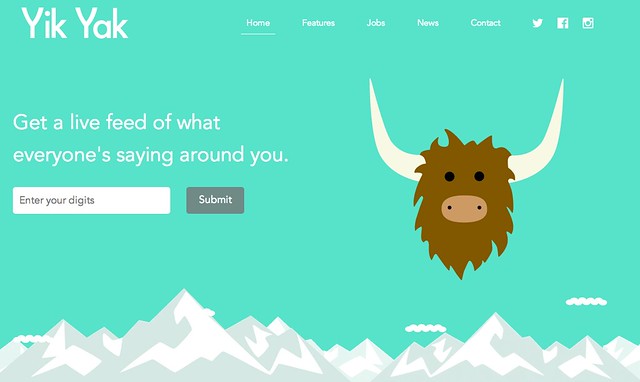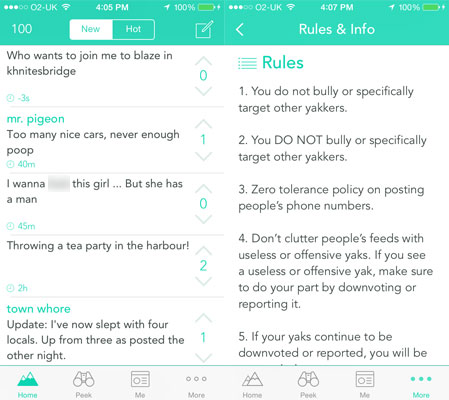You have /5 articles left.
Sign up for a free account or log in.
When I first heard about Yik Yak, it was being referenced in an article about cyberbullying at Chicago high schools. Recognizing that anonymous posts via the mobile app were hurting students via threats and intimidation, Yik Yak blocked access within defined electronic geo-fences. It was actually a classy maneuver.
Curious about Yik Yak, I downloaded the app last April and found a fairly disgusting mix of sexual harassment, racism, sexism, homophobia, drug references, and other random thoughts. I wasn't impressed. I deleted the app from my iPhone and went back to using channels that didn't seem to thrive on anonymous debauchery. Yik Yak is like a drug-fueled rave filled with miscreants. It makes Twitter look like a calm, relaxed coffee shop. However, like Snapchat before it, Yik Yak is supremely popular with young people. College students can't seem to get enough of it. In fact, if you do a search for "Yik Yak" and "College," you'll get an endless stream of commentary from students about their love for the app.
Anonymity on the web isn't new. Anonymity via mobile apps isn't new either. Anonymity that is geo-fenced AND popular. Well, that's a recipe that can cause a lot of controversy. Basically, Yik Yak realizes that their platform provides a safe-haven for bullies and those who would engage in all sorts of cowardly missives. While Yik Yak did the right thing with high schools, they seem to care very little about the fracturing and fragmenting that their app can cause. Of course there are those who might say that more positive posts are needed in order to combat the constant flow of negativity that comes out of Yik Yak. Perhaps that would help.
Recently, via the Social Media - Higher Ed community on Google+, there was a question about Yik Yak around how schools were dealing with "rude comments." Apparently, some alumni as well as current students were "upset by some of the things [that were] posted." Now, this gets into an entirely different avenue around expectations that students and alumni have of campus administrators to somehow monitor and manage postings via an anonymous web app. Yik Yak may promote its presence at your school, but you have absolutely no control over what's posted.
In a somewhat ironic twist, while I was putting this post together, I noticed a tweet referencing a campus alert due to a Yik Yak post:
Fortunately, it looks like the post at Indiana State was a hoax. But, the post definitely got the attention of ISU Public Safety as they posted an alert on their website.
The creators of Yik Yak seem to get the fact that their app is being used in negative ways. And, it's not as if they are the cause of the problem. Yik Yak represents a symptom of a much greater concern. What motivates people to be so horrible and cruel when they're posting on anonymous forums?
There are humorous posts on Yik Yak. For example, in what is most-likely a PR move by Yik Yak, the @YikYakApp Twitter account tweets out positive and humorous posts from the app. I'm guessing that this is part of their marketing campaign to soften the harshness that is available at any moment when you open up the app on your phone.
While it may be tempting to use Yik Yak to engage with students at your campus, I would be hesitant to recommend doing so. Sure, the geo-fenced communication that it offers is targeted to your school. But, you'll be wading, neck-deep into one of the grimiest scenes in the mobile-sphere. My advice: work harder on teaching your students how to use the tools that will help them build a positive digital identity. While there's absolutely nothing inherently wrong with anonymous postings, the sites and apps that offer them seem to always generate a hot mess of trouble.
Do you tweet? Let's connect. Follow me on Twitter.






